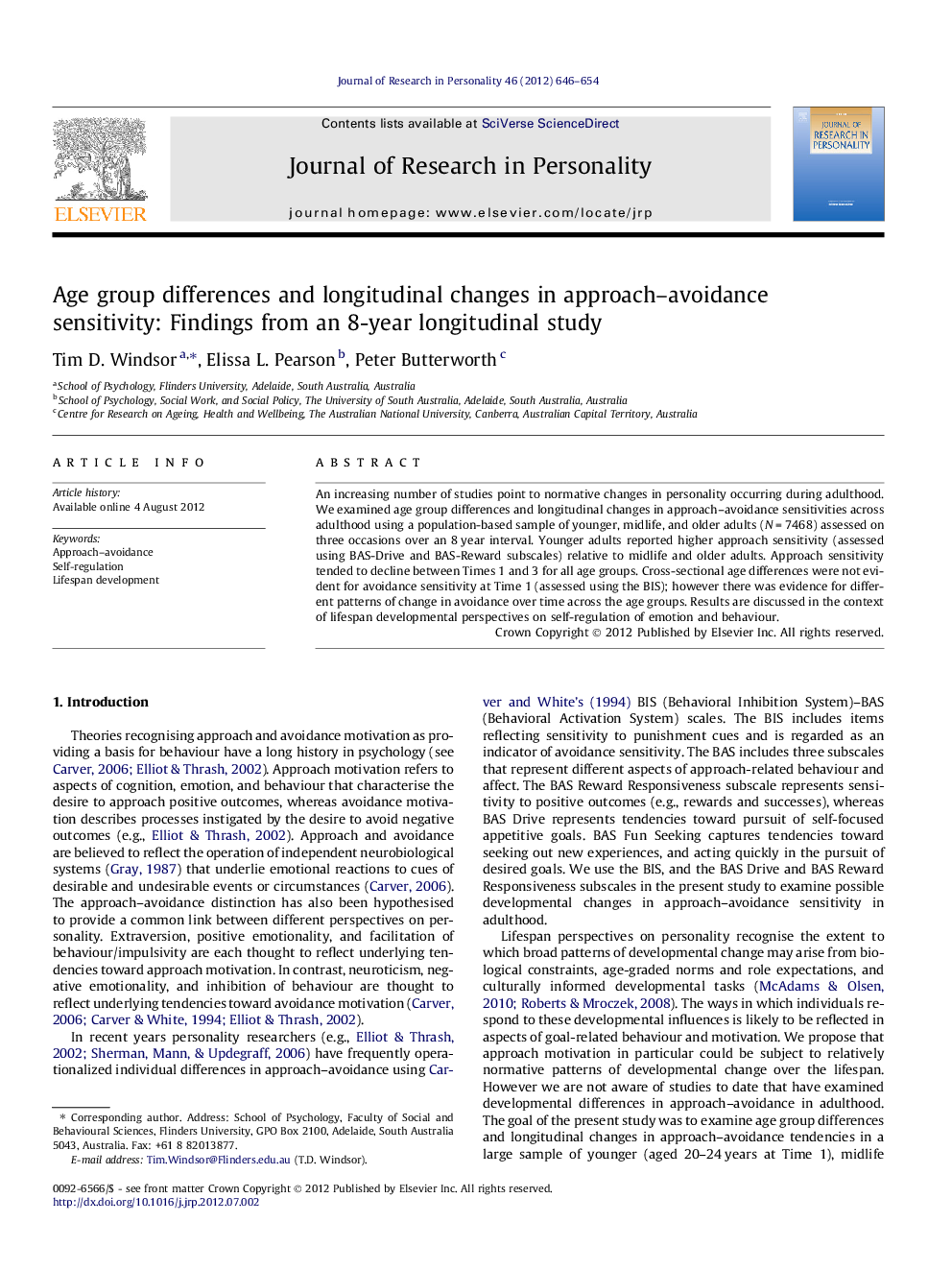| Article ID | Journal | Published Year | Pages | File Type |
|---|---|---|---|---|
| 951476 | Journal of Research in Personality | 2012 | 9 Pages |
An increasing number of studies point to normative changes in personality occurring during adulthood. We examined age group differences and longitudinal changes in approach–avoidance sensitivities across adulthood using a population-based sample of younger, midlife, and older adults (N = 7468) assessed on three occasions over an 8 year interval. Younger adults reported higher approach sensitivity (assessed using BAS-Drive and BAS-Reward subscales) relative to midlife and older adults. Approach sensitivity tended to decline between Times 1 and 3 for all age groups. Cross-sectional age differences were not evident for avoidance sensitivity at Time 1 (assessed using the BIS); however there was evidence for different patterns of change in avoidance over time across the age groups. Results are discussed in the context of lifespan developmental perspectives on self-regulation of emotion and behaviour.
► First study to examine age differences and longitudinal changes in approach–avoidance in adulthood. ► Large population-based sample assessed at three time points over 8 years. ► Younger adults report higher approach motivation (Bas-Drive, Bas-Reward) than midlife and older adults. ► Age groups reported similar initial levels of avoidance (BIS), but showed different patterns of change.
